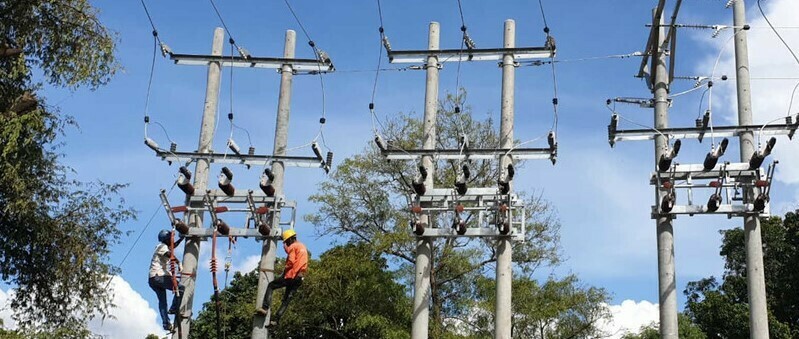The Central Equatoria State Chamber of Commerce on Tuesday blamed the Juba Electricity Distribution Company (JEDCO) and Ezra Power Plant for poor electricity supply and services to the businesses and residents of Juba.
Addressing a press conference, Robert Pitia Francis, the chairperson for Central Equatoria State Trade, Agriculture, and Chamber of Commerce, said businesses are slowing down and making losses due to the poor electricity supply.
“Businesses are going down and looking for alternatives is going to be another cost because some of the business owners thought that the city now had reliable and efficient electricity,” he said. “People even pay more because JEDCO is expensive and yet there is no power supply.”
Pitia accused JEDCO of charging high electricity tariffs pegged to the dollar exchange rate and not fulfilling their end of the bargain of supplying power. He called on the government to review the contracts with the power companies.
“They charge traders and people using the black market foreign exchange rate meanwhile, they are getting money from the Central Bank, leave alone other charges they levy which they cannot even explain clearly,” Pitia charged. “These are the challenges that our people are facing. Therefore, there is a provision in any contract, terms and conditions if a company cannot deliver, there is a provision to cancel the contract and the contract can be given to a company that can deliver efficient and reliable electricity to the business people and to the people in Juba.”
“You have your business, the same company that the government signed a contract with is billing electricity very expensively, yet the supply is intermittent and the government also comes and collects taxes, so we need the people responsible to answer these questions,” Pitia added.
He also blamed the skyrocketing commodity prices on multiple taxations by different levels of government.
According to Pitia, besides the multiple taxes, external factors like a rise in the cost of fuel have led to expensive transportation costs. The increase in global commodity prices and import taxes in neighbouring countries exporting food to South Sudan have also seen prices skyrocket.




